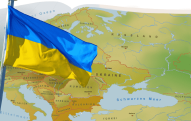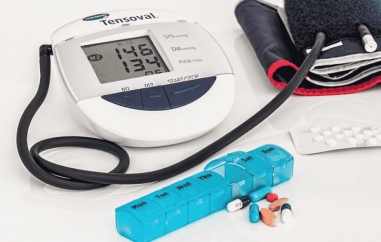How effective are vaccines against viral variants?
The situation in Germany seems to be slowly easing again. For some time now, Corona numbers have finally been steadily declining again. Most recently, the Robert Koch Institute (May 19) reported a 7-day incidence of 72.8 for the Federal Republic - and even in former hotspot areas such as Heilbronn, there is now finally the prospect of first relaxations of the federal emergency brake. We probably owe this development to the strict lockdown regulations, but to a certain extent also to the vaccinations against the coronavirus.About 40.6 million vaccine doses have now been administered in Germany. Thus, 37.5 percent of the total population has received at least one vaccination dose (as of May 18). 11.5 percent of Germans have even been fully immunized. But for all the safety that such a Covid 19 vaccination promises, the question still remains as to how well one is actually protected against the coronavirus after immunization.
There are now a wide variety of virus mutations - the best known are probably the British, the South African, the Brazilian and the Indian. They are often said to be more dangerous, more contagious or more deadly than the original coronavirus. Intensive research is being carried out into this - and the focus is particularly on vaccines. And the question is: how protected are vaccinated people against the new Covid 19 variants?
The good news in advance: In principle, researchers currently assume that all preparations that are currently on the market in Germany also help to some extent against the known mutants of the coronavirus. The motto is: vaccinating oneself provides more security against a serious illness than simply remaining unprotected. Nevertheless, the question remains how well immunization works for the individual variants that are known in this country.
Virus variants are already widespread in Germany
Some of the Corona mutants are already widespread in Germany. In particular, the so-called "British variant B.1.1.7" of the virus has become established. According to the German Press Agency, it currently dominates the examined samples with an enormous share of 90 percent. The mutant B.1.351, which was first detected in South Africa, accounts for about one percent of the samples examined, according to the RKI, while the variant P.1 from Brazil is at about 0.5 percent.
Variant B.1.617, which was discovered in India and made headlines as a so-called "double mutant," has so far accounted for less than two percent of samples tested in Germany. According to the RKI, about 30 cases of the Indian corona mutation are detected every week - but it goes on to say that the proportion has recently "steadily increased".
Corona mutation: How the variants affect vaccine efficacy
But just because coronavirus mutations spread faster or better doesn't mean vaccine protection is compromised. According to research, this is what is known so far:
- British Variant B.1.1.7: It "does not particularly" affect the effectiveness of the BioNTech vaccine, according to the Robert Koch Institute. This is what analyses from Israel and Great Britain have shown. The active ingredient from AstraZeneca, on the other hand, could be slightly less effective than with the original virus. However, according to the RKI, the studies on this are only "of limited significance" because only a few cases were considered.
- The Indian variant B.1.617: According to the Robert Koch Institute, the first studies indicate that this mutant "does not substantially impair" the effectiveness of vaccines. U.S. researchers found that it did. However, the same is true here: Not enough cases have been studied to confirm this statement in a fixed way. In late April, Leif-Erik Sander, head of the Infection Immunology and Vaccine Research Group at Berlin's Charité University Hospital, told Science Media Center: "There is currently no reason to worry that vaccinations will lose their effectiveness due to this viral variant."
- The South African variant B.1.351: To date, there is little data on this mutant. However, the RKI assumes that it "at least reduces" the effectiveness of previous vaccines. In Qatar, however, the BioNTech vaccine was analyzed to be very good at preventing severe and fatal disease progression. The AstraZeneca vaccine is described as slightly less effective, according to a study from South Africa, and the Johnson & Johnson agent may also have reduced efficacy, according to preliminary data from the European Medicines Agency (EMA).
- The Brazilian variant P.1: According to the RKI, this viral mutation is similar to the Covid-19 variant B.1.351 and could therefore also reduce the effectiveness of the vaccines. In mid-March, researchers from the United Kingdom examined the P.1 mutant and concluded that the vaccines from BioNTech and AstraZeneca are probably just as effective as against the British variant B.1.1.7. A study from the United States, on the other hand, showed in February that the preparations from BioNTech and Moderna have a "significantly reduced" effectiveness with P.1 and B.1.351.
It remains to be said that, unfortunately, there is as yet no reliable information on the efficacy of the individual vaccines, but there is a tendency. This is: Even if the mutations may limit the effectiveness of the vaccines, there is no reason to worry. Experts believe that all vaccines approved in Germany to date protect against very severe to fatal courses of the currently known Covid 19 mutations.
In addition, the researchers believe that existing vaccines can be quickly adapted against threatening mutants - and that booster vaccinations can always provide protection against possible new mutations. This would be similar to what is already done with the annual flu vaccination.
Image by Alexandra_Koch
Â



































